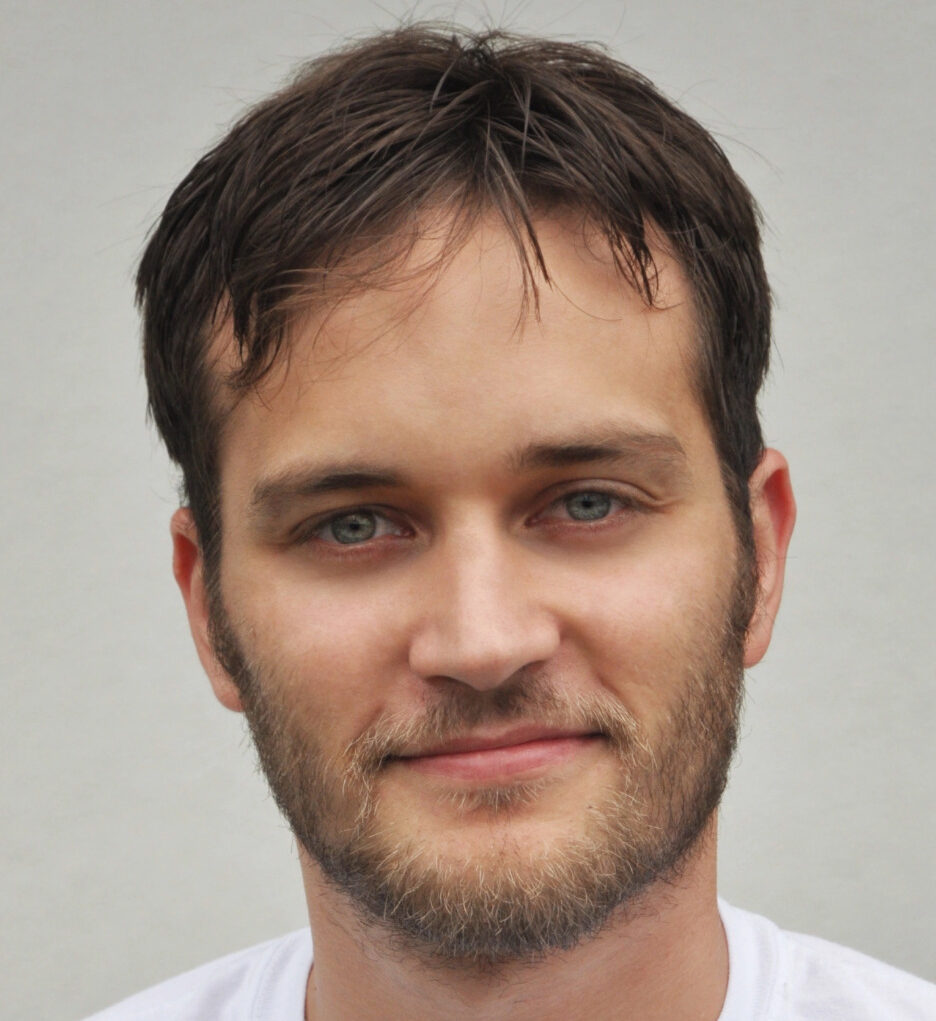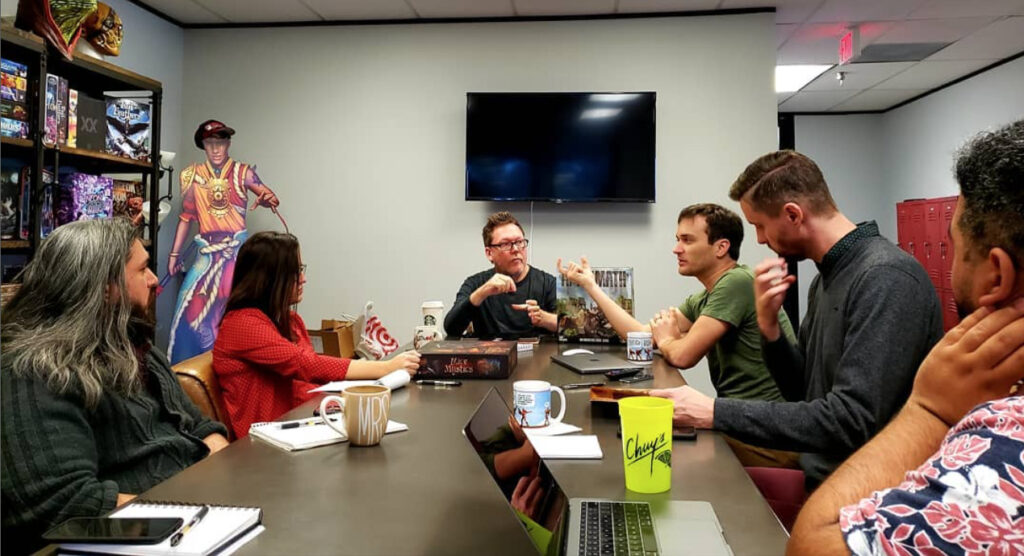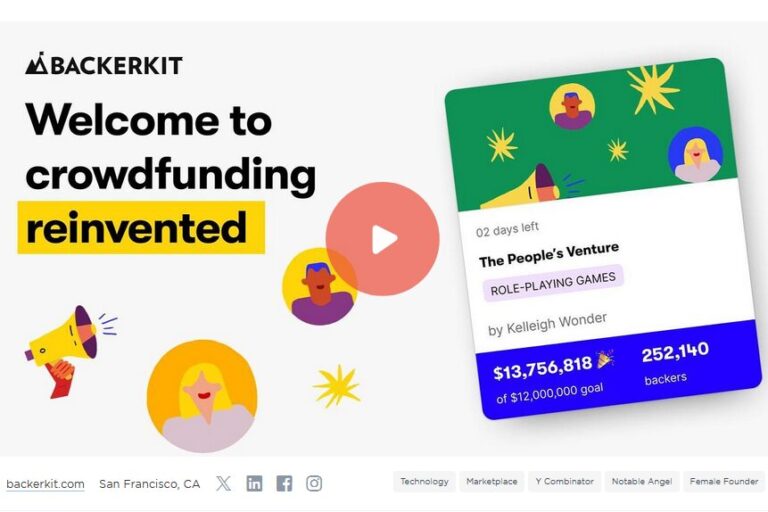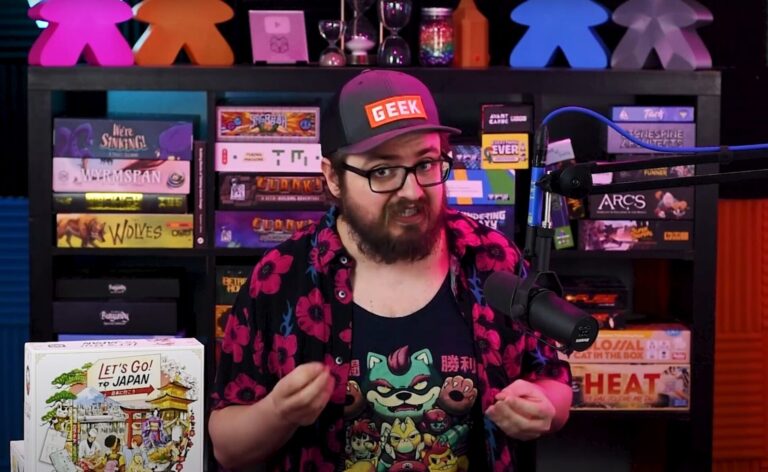
Four years after leaving Asmodee, Dead of Winter creator Plaid Hat is finally free to do things its own way
Plaid Hat Games is a rarity in the tabletop gaming space. Since board game giant Asmodee began its enormous private equity-fuelled acquisition spree in 2014, just two studios that went in to the currently 22-studio conglomerate have found their way back out again. But despite four years having passed since Plaid Hat creator Colby Dauch bought back his company, an exclusivity deal signed as part of the exit has put limits on what the newly-independent studio has been able to experiment with. That deal expired ten days ago – and Dauch has wasted no time in spreading Plaid Hat’s wings for its first-ever foray into crowdfunding, with the launch of its latest narrative-fuelled Crossroads game, Wandering Galaxy, set to go live on Kickstarter in the summer.
Dauch created Plaid Hat in 2009 to sell his highly-regarded card-based fantasy battler Summoner Wars, and scored an even bigger hit with animal-themed co-op adventure game Mice and Mystics in 2012. It was two years after that, though, that the publisher really hit the big time, with standout release Dead of Winter scooping a string of awards – and big sales – for its thematic mix of zombie survival, traitor mechanics and story-driven gameplay.
Success bred bureaucracy, however, and a year later Dauch allowed Plaid Hat to be bought by Canadian board game business F2Z Entertainment – the then parent company of Z-Man Games and Filosofia Editions – in an attempt to lean on the larger company’s infrastructure. Dauch said at the time, “As Plaid Hat Games has grown, the other aspects of the board game publishing business have devoured more and more of the team’s time and attention. This acquisition by F2Z Entertainment allows the Plaid Hat Games’ team to turn their attention back to what they do best.”
Just a year later even bigger changes were afoot, as tabletop gaming giant Asmodee continued its strategy of gobbling up smaller publishers and studios by agreeing a buyout of F2Z – and Plaid Hat along with it. But the studio failed to replicate its earlier successes while under Asmodee’s umbrella, which Dauch called “defeating”, and added that when the opportunity arose in 2020 to buy his company back and gain independence from Asmodee, he seized it.

That opportunity did not come without a cost. As well as having to leave behind Plaid Hat’s biggest hits, including Dead of Winter and Mice and Mystics, Dauch had to sign a four-year deal giving Asmodee first right of refusal to be exclusive distributor of their games, in any country where they had a distribution unit – which in practice meant the majority of the North American and European markets. While that came with its upside, the contract heavily hamstrung the newly-independent business in terms of its distribution options – and meant experimenting with something like a Kickstarter campaign was functionally impossible.
Dauch said, “I negotiated it down to four years – they started off at five, and obviously I didn’t want to be beholden to it forever. Because of things like this [Kickstarter campaign], like being able to plan and know who’s going to be the distributing your game… it was hard to know in some countries who’s going to have it – especially the US, which is far and away our biggest market.
“…It became a barrier just for communication and stuff. But it wasn’t without its perks, especially like starting brand new, and having a full staff even though we’re starting brand new. They were ordering minimum runs on the games that they took the exclusivity on [Forgotten Waters, and Forbidden Tales], so we could know that almost all of that print run is sold straight out the gate, or a reprint is sold straight out the gate, and that really helped get our feet under us as far as cashflow goes. So it had its benefits.”
Forgotten Waters, a pirate-themed Crossroads game released in the wake of the studio becoming independent again in 2020, marked a return to form for Plaid Hat, with a game Dauch said would not have been possible to make while part of Asmodee. He said, “There are a lot of things that I couldn’t have done, that I was unable to do, because [now] I’m not answering up the chain, right? Like, the responsibility lies with me, so the risks are mine to take… and so Forgotten Waters having a full voice cast and app and going that direction was not something that we were going to be able to do under Asmodee. When we made that shift – Forgotten Waters was a game that we brought with us that we’d started developing under them – …I think it really helped it stand out, be set apart from other titles.”
Plaid Hat plans to continue that policy of pushing boundaries post-independence, starting with Wandering Galaxy, a new Crossroads game designed by Mice and Mystics and Stuffed Fables creator Jerry Hawthorne. The game, which casts players as a ragtag starship crew traversing the edge of charted space, marks the first opportunity Plaid Hat has had to dip its toes into crowdfunding, with Dauch saying Kickstarter is a part of the industry that “can’t be denied”.

He said, “In the last several years Kickstarter has become kind of an undeniable part of board games, it seems. Crowdfunding is just part of the cycle of most board games, and so we want to try it, we want to see. We want to do it our way – we’re not going to do a bunch of exclusives, we’re not going to do a bunch of FOMO stuff. So maybe we’re not going to do the numbers that those who do those things will. But we certainly think that there’s an audience that we’re missing by not being on there.
“We’re an established company, or at least an established name… but we’re not established for Kickstarter. People don’t know us there, or some amount of people don’t know us there. So really, we’re in the dark [about how much we might raise]. We’re trying to piece together, but basically we’ll be able to measure how well we’ve done on our pre-orders that we set up ourselves, and how well we’ve done on Kickstarter, and then what Kickstarter’s cut is and really determine whether or not the value is there. But that’s all going to have to be looking backwards, I can’t really cast it forward. I would just be shooting completely in the dark to give you a number.
“Because we haven’t relied on Kickstarter in the past, we do have strong distribution relationships and all that, so I think that we can still print with confidence that we know that we have sales channels existing. So I’m not I’m not too afraid about it, but I am anxious to see how it does. Of course you see the stuff going on Kickstarter just catch fire, so the possibility of something like that happening is of course exciting. But then you also see stuff go up there and flop. And if that happens, we will all be very disappointed. So those two together swirling create a little tornado of anxiety.
“It would be disappointing, but I don’t think it would be a disaster. I think that it would be informational, you know, we would be able to tell like ‘okay, well this maybe isn’t for us’, but we’ll examine it afterwards. Like, do we need to Kickstart for a while before we’re well enough known and trusted? I don’t think so – I think people will be able to look us up and see that we’ve been around for going on 12 years, and have some confidence in us because of that. So really, if it doesn’t do well I think we learn that that’s just not where our customers are, and that’s not where they want to be.”
Kickstarter has had its own issues in the last couple of years, and is currently fending off a challenge from competing crowdfunding platform Gamefound, which is dedicated entirely to tabletop gaming campaigns. Gamefound has begun to make serious inroads into Kickstarter’s hegemony of the space, pulling in $56m across crowdfunding projects in 2023 and bagging the biggest board game fundraise of the year, as well as five of the top 10 most-funded board games. Big names in board gaming have begun to leave Kickstarter for other platforms – notably Gloomhaven publisher Cephalofair, which switched to BackerKit last year, and board game crowdfunding major CMON announcing an exclusivity deal with Gamefound earlier this month.
Dauch said of his decision to go with Kickstarter for Plaid Hat’s first campaign, “Kickstarter is the biggest, most well known, and has the biggest audience. So if we’re really going to give the crowdfunding thing its best chance, I feel like we’ve got to go Kickstarter. I’m sure there are advantages to the others or people wouldn’t be moving over to them. But right now, I think what we’re most interested in is the ability of crowdfunding to bring new eyes, new audience. And I think our best shot at that is the one with the biggest audience.”
Dauch said that the company’s first attempt at crowdfunding has required some big changes to how they normally produce and pre-market their games – but said that the huge experience gained from being under a larger company had stood him in good stead for adapting to the process.
He said, “I feel like I’m much better equipped as an operator, a runner of a board game company. And then just – I mean 12 years doing the same thing, your skill level grows, from development, production, design – all of it. [For the Kickstarter] we’re developing a lot of marketing materials, and then starting it really early. We’re doing a bunch of early copies, but made on the press, so they’re like final copies – we’ve never done that before, it’s quite expensive, but that way we can get it out to previewers and ‘how to play’ people and all that, and create all of our content.
“You want to launch all of your content, pretty much all at once, or in fast succession, when you’re doing a campaign, because you’re wanting to blow the doors off day one, right? So there’s been a lot of careful planning and really having to have so many of our assets really early, just how we’ve planned it out. But I think that having been in business for so long doing this, we have some advantages in knowing which printer is going to get stuff done in time, knowing what the timelines are, knowing what stuff costs, having our act together in that arena helps us avoid, I think, some of the pitfalls of people new to Kickstarter.
“I think that sometimes you see people who think that they have all this margin, and don’t appropriately count the costs, or don’t have the right connections to the right vendors, and end up really struggling to make a profit… when I see a company return to Kickstarter to do a reprint, you know, I wonder… is it just that they felt like they can only reach an audience through Kickstarter? Is it that they felt like they’re kind of on a treadmill and they need to kickstart in order to have the margins necessary to print it? Did they keep retail in mind? Did they run out of capital and so need to pre-pay for the print run via a crowdfund? I look at those things with some scrutiny and wonder if there weren’t some missteps along the way that that created a treadmill for them and those are things that obviously I think you want to avoid.”
Dauch said the game development and printed elements of Wandering Galaxy will be fully complete by the time the Kickstarter launches. “I don’t think you want to be relying on the Kickstarter for the actual development side of things”, he said. “It’s more for the production. I don’t know that [launching a crowdfund without having developed the game already] is very successful these days. I listen to a podcast by Seth Godin, who’s a marketing guru, and on that he’s called Kickstarter, ‘Kickfinisher’, which I think is apt. You’ve gotta have all of your ducks in a row. And then you’re just asking it to help take you across the finish line.”
“Wandering Galaxy, like Freelancers, like Forgotten Waters, will have the game master in an app, and so we’re doing a full voice cast production, sound design, music, all that immersive stuff that we’ve explored with Forgotten Waters and Freelancers and Familiar Tales, we’re bringing to the table here. And that stuff can continue to be worked on, even after the game has been sent to the printer. And then we just need to have that stuff done by the time the print run reaches us in the States and elsewhere.”
Plaid Hat has more than doubled its core staff to nine since its takeover by F2Z, in addition to now employing a host of outside contractors, artists, graphic designers and editors. Dauch said if the Kickstarter is successful “I’d like to give everybody a raise, and then potentially bring on some new folks.” That would include more help on the digital side of things – the company is set to launch its iOS and Android app for Summoner Wars Online on March 5, and if that does well Dauch is keen to expand the digital side of the business. But he plans to cut down on the company’s physical release schedule compared to the Asmodee days, in order to allow the team to fully focus on each design.

He said, “If that Summoner Wars Online does really well we’ll want to do more in that field, And Ashes would be a big candidate there. I’m looking to do a new game a year, and then support Ashes and Summoner Wars, basically. I’ve already gone down the road of having sold my company once, I’m not interested in doing that again – it’s like, I don’t need to build up some kind of minimum revenue a year. Just as long as my people are taken care of, I’m happy, so I don’t want to push too hard, to be pushing out release, after release, after release. And so I think keeping it to one big new release a year is where I want to be.
“At Asmodee we were doing two or three a year. I think it was too many – I think one of our strong suits is the narrative storytelling games, I think we do it better than anybody else. And that takes a whole lot of energy and effort to produce one of those. It’s just massive, the amount of writing. Freelancers, we’ve got no foreign partners on it, because of the translation work alone. They didn’t have to develop it – the translation work alone was just too much for them. And so we’re committed to those big epic projects. And in order for them to maintain their quality I think that we kind of need to be all hands on deck on them.”
Dauch said a major blow to leaving Asmodee was having to part with the rights for Plaid Hat’s biggest games, including Dead of Winter and Mice and Mystics – but added that he wouldn’t be against re-creating new games that draw their inspiration from similar places.
He said, “It was tough. But there was no way around it – it wasn’t like I was giving them up, they were the assets that the company got bought for basically. You know, I’m sure that staff was one of those assets, but we kind of struggled to make a success that big while we were under Asmodee. And that really felt defeating for me. And so, you know, by the time we left… there’s no way I could have afforded to get those back.
“Nothing’s been done with those, as far as I can tell, and I think that they were really special properties. I wouldn’t remake the game and rename it. It would feel dishonest to me, I think. But the idea of making a horror game that’s narrative driven, and, you know, our history with Dead of Winter. As long as you’re bringing something new to the table, you know, I’m definitely not opposed to that.”







[…] s’attendre pour ce grand retour aux sources de Plaid Hat Games ? D’après Dauch, interviewé par BoardGameWire, l’indépendance leur permet de prendre plus de risques créatifs et d’innover […]
[…] Four years after leaving Asmodee, Dead of Winter creator Plaid Hat is finally free to do things its … […]